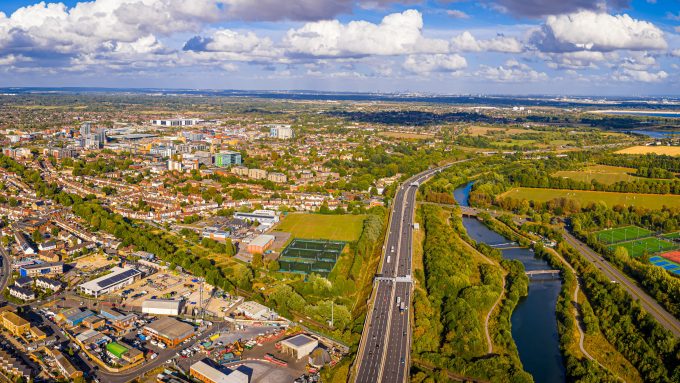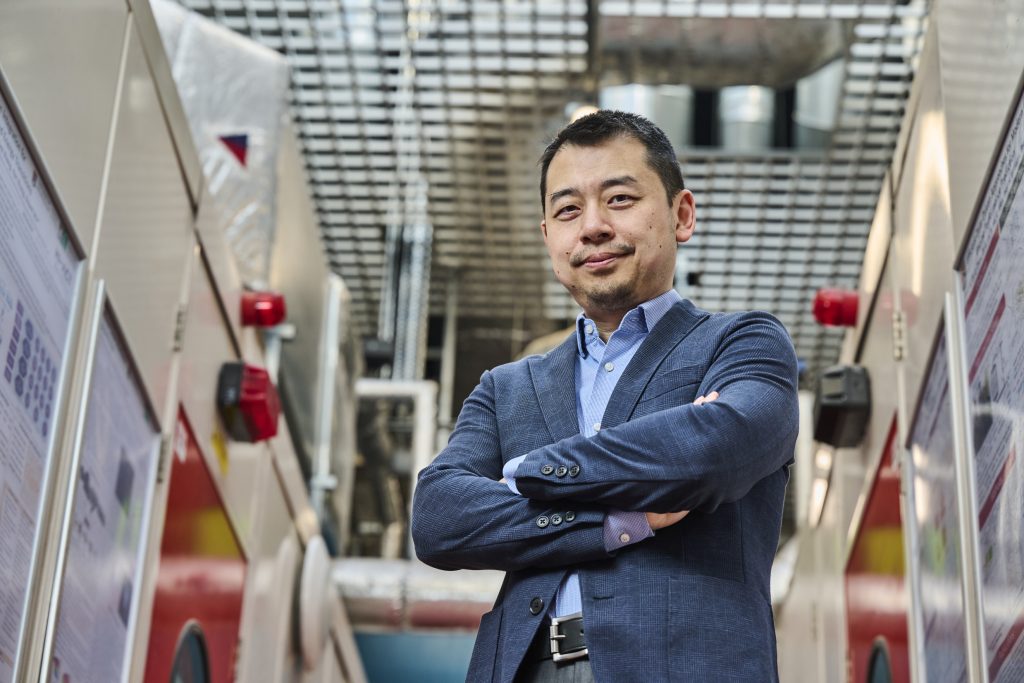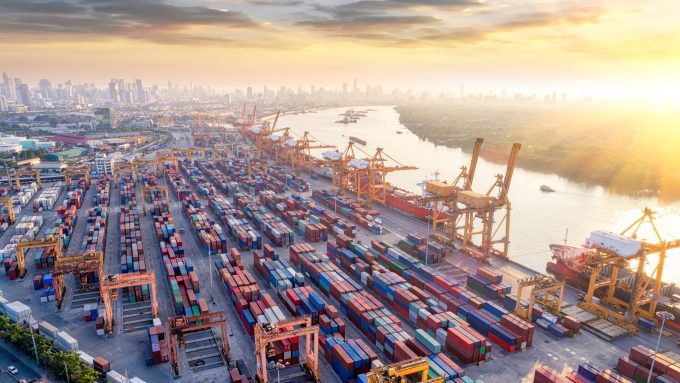
Meet the Academic backing hydrogen for a clean energy transition

Plumes of thick smoke used to spew from diesel engine ferries crossing the Huangpu River in Shanghai, carrying commuters and schoolchildren across the city including a young Dawei Wu.
“They smelt horrible, made the air grey and it was a depressing sight,” recalls the University of Birmingham academic. “I remember thinking that I don’t want to live in a polluted environment like that.
“But now Shanghai has been transformed: the sky is clearer and the river cleaner. This is why decarbonising transport is so important.”
Fast forward to today, and Dawei has built a wealth of knowledge around alternative fuels and has now completed work on a hydrogen innovation roadmap, giving the industry milestones to aim for over the next 25 years.
Last year, he was awarded Researcher in Residence status by Connected Places Catapult to advance our collective understanding of advances in hydrogen technology, as well as highlight opportunities for investment.
Early years in a bustling port city
Growing up, Dawei was also acutely aware of the importance of Shanghai in terms of global trade, and describes the city as a “connecting knot” for the Chinese manufacturing sector exporting goods to consumers across the world, and for firms importing raw materials.
Recent decades saw Shanghai’s skyline quickly develop and its maritime infrastructure grow to become the busiest port in the world. Dawei notes that huge container ships arriving into port today resemble “cities approaching from the sea”.
Given where he grew up, the sights around him – and the fact that his father was a professor in marine engineering – it’s not hard to see how his career developed in the way it did.
But before entering maritime, Dawei studied two Bachelor’s degrees at Shanghai Jiao Tong University: in automation control engineering, and thermal energy and power engineering. His academic results were impressive, so he skipped a Masters to embark on a PhD in cryogenics and refrigeration engineering.
“My first projects were around combined heating and power systems for domestic applications, but I had a growing interest in improving how engines performed for transportation applications.”
“I remember my supervisor, Professor Ruzhu Wang, being keen to invite different foreign academics to present guest lectures and workshops; which allowed me and my fellow students to be exposed to the best of international thinking.”
During his PhD, he was awarded a scholarship to become a researcher in Berlin. “That year really changed my views, and I realised just how interesting academic research was, and that it would allow me to do exciting things on a daily basis. After that, I had an offer to work for an oil and gas company in Norway – but decided to follow my instincts and pursued a career in academia instead.”
Dawei accepted a position at Newcastle University’s Sir Joseph Swan Centre for Energy Research in 2008 as a research associate; attracted by the institution’s maritime pedigree. He stayed at the university for 11 years; progressing to senior research fellow, lecturer and then senior lecturer in marine engineering.
“I took steady steps in my time at Newcastle, and worked alongside a very good supervisor who gave me lots of support and introduced me to a very diverse research environment,” he adds.
Dawei transferred across to Newcastle’s department of marine science and technology, and embarked on a fellowship supported by the Engineering & Physical Sciences Research Council.
“I remember very well discussions around developing a new type of marine engine using ammonia as a fuel, and I published several research papers on the use of biofuels,” he adds. “I also polished my teaching skills in Newcastle, and lectured students for several hours a week.”

Moving from Newcastle to Birmingham
Five years ago, Dawei joined the University of Birmingham as an Associate Professor in Mechanical Engineering, with a specific focus on the use of alternative fuels such as hydrogen in the maritime sector.
He now leads a team of 15 people conducting a broad range of research activities focused on designing new engines or retrofitting old ones to accommodate alternative fuels. Dawei is also the lead for low carbon marine powertrain and propulsion systems at the UK Clean Maritime Research Hub, of which Birmingham University is a part.
“Decarbonisation is the biggest issue of our time – we need to leave a planet that is still usable to our future generations,” he says.
Dawei recognises that Birmingham is not a university closely associated with maritime research – so why the move to the West Midlands?
“Birmingham is very strong in terms of mechanical engineering, and its research into engines and power chains that could support the UK maritime sector,” he explains. “Remember too that the UK is an island, so no-where is very far from the sea.”
Support from the Catapult
Dawei’s current focus through the Researchers in Residence programme is to enhance our knowledge of – and identify technology gaps with – hydrogen innovation in the UK. His plan is to help grow and strengthen the UK’s involvement in the sector, through the roadmap that has been populated by academic and industry viewpoints, and was published in June.
In July, Dawei will be moving to Durham University to take up the role of Professor in Maritime Clean Energy – sponsored by shipping company Mitsui OSK – where he will continue his Researchers in Residence project.
“Connected Places Catapult provided me with very good links to industry that were needed to capture stakeholder views for the roadmap, which I hope to present to Government soon,” he says. “They also helped me to broaden my academic network through the Researchers in Residence programme.”

Dawei has also been working in concert with the Hydrogen Innovation Initiative and national hydrogen research hub HI-ACT to further expand the sector’s understanding of the emerging technology and market opportunities for hydrogen.
Beyond helping industry to engage with the roadmap, Dawei hopes to establish a spin-out company soon to create hydrogen products and offer consultancy support for the maritime sector.
“The UK is one of the global leaders in hydrogen technology research, but I would like to see the Government pour a bit more money in to support the sector,” he adds.
“I'm very optimistic about our decarbonisation aims in maritime, because this is the only way to move forward. But if we don’t aim for net zero, our planet could be doomed.”
Find out about our latest Researchers in Residence scheme. To be alerted about opportunities at Connected Places Catapult, join our Academic Network





